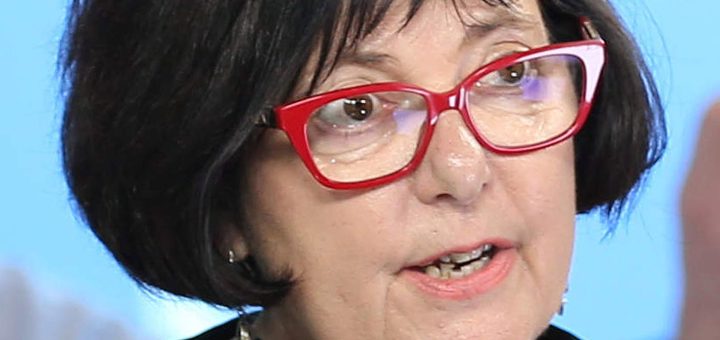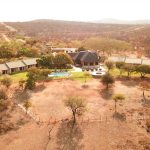CLIMATE TALKS
South Africa disappointed by adaptation progress at COP27

The lack of progress on adaptation at the COP27 climate conference in Egypt was a disappointment to South Africa, which had hoped that the funding to ensure resilience to the climate crisis would better position its citizens in the face of growing climate events.
Global climate talks, Congress of the Parties (COP27), showed little appetite for a programme on adaptation, leaving South Africa disappointed with the outcome of the negotiations, said Minister of Forestry, Fisheries and the Environment (DFFE), Barbara Creecy.
“The way decisions get made at COP is that they do need to be consensual — there was less appetite for a firm work programme on adaptation, and that is why we were disappointed with the outcome,” said Creecy.
Adaptation, according to the DFFE, is adjusting to existing or anticipated climate threats to minimise the effects of the climate crisis on people and the environment. Adapting to the changed climate and its effects minimises harm to people, infrastructure and the environment, and reduces loss and damage costs.
The COP27 parties eventually made headway on including loss and damage in the final agreement, with further battles on implementation to be discussed in future COP meetings.
In a statement, Creecy said there was agreement between countries to make some progress on minimising the climate vulnerability of societies.
“… from our national perspective, we did not see the advancement on actually operationalising the Global Goal on Adaptation that we had been hoping for. In particular, South Africa had called for a target to increase the resilience of the global population by 50% in 2030.
“We had also called for COP27 to establish a framework for the Global Goal on Adaptation that contained high-level indicators and targets to galvanise collective global action and support.”
Adaptation funding and the fossil fuel industry
An Adaptation Agenda was launched by the COP27 presidency in Sharm el-Sheikh to help build climate resilience for about four billion people around the globe by 2030.
British prime minister Rishi Sunak tripled the country’s funding from £500-million in 2019 to £1.5-billion by 2025 to the African Development Bank, with preference given to adaptation.
The African continent contributes about 4% of global emissions, yet is being hit hardest by climate change with few to no means to shield itself from those impacts.
South Africa contributes about half of those emissions at 2%, with the fossil fuel industry, transport sector and mining contributing most of those emissions.
“If [the big polluters] made net zero commitments by 2050, they require finance and investment in order to achieve those goals. If you think we can pull off a climate transition without involving the emitters, then I don’t know who you think is going to reduce the emissions,” said Creecy.
Visit Daily Maverick’s home page for more news, analysis and investigations
“If you think this can be done without finance, then what you’re saying is that the South African taxpayer must foot the bill. So the intention of the (South African) pavilion [at COP27] is to give the big emitters an opportunity to meet global partners, to meet investors, and take forward their commitment to achieving net zero by 2050.”
South Africa’s Just Energy Transition Investment Plan (JET IP) was well received at the conference among developed countries, some of which have pledged to further their financial support of the plan.
The plan, launched on the eve of COP27, stressed three key sectors that would lower the country’s emissions: the electricity sector, investment into green hydrogen and the development of an electric vehicle sector.
JET IP is expected to cost around R1.5-trillion.
Creecy said South Africa’s middle-income status placed it in a difficult position in terms of securing climate action funding.
President Cyril Ramaphosa stressed in his JET IP presentation that funding for the country’s decarbonisation agenda should be in the form of grants and highly concessional loans.
Win some, lose some
“As with all COPs, we lost some and won some… making progress on adaptation is very important because the more progress you make on adaptation, the less loss and damage you are going to have in the long term.
“We think adaptation is very important… we are all living through climate change, it is a reality of our lives and is already impacting on infrastructure, lives and livelihoods,” said Creecy. DM/OBP





















 Become an Insider
Become an Insider
Solar wind power our country is perfect for that. The billions in irregular spending should go to creating jobs not favouring a select few. For years nothing came from the empty promises. I pray that God will bless this beautiful country with leaders that serve. We should never have had power issues.